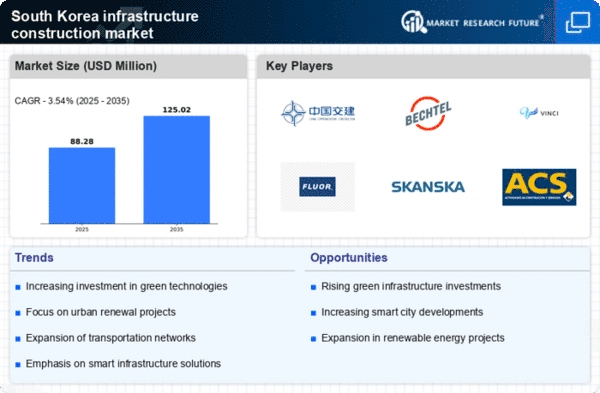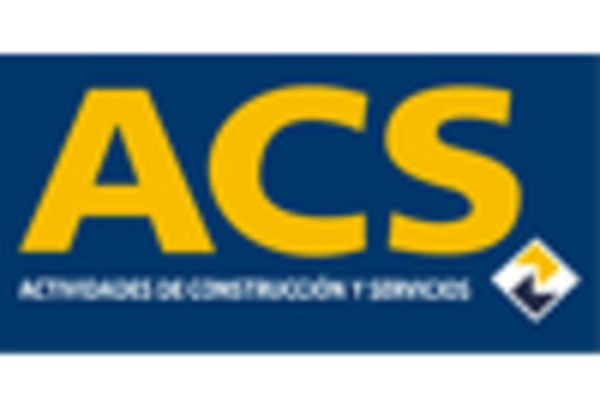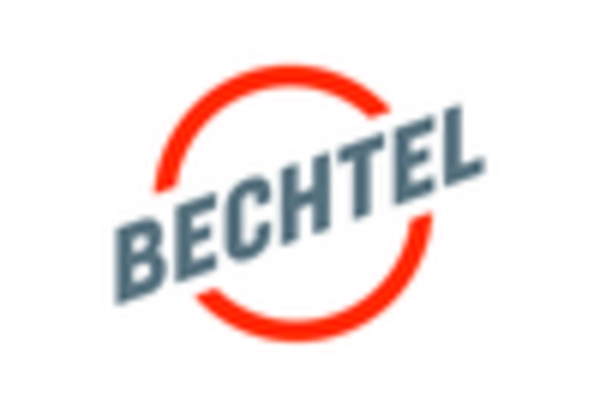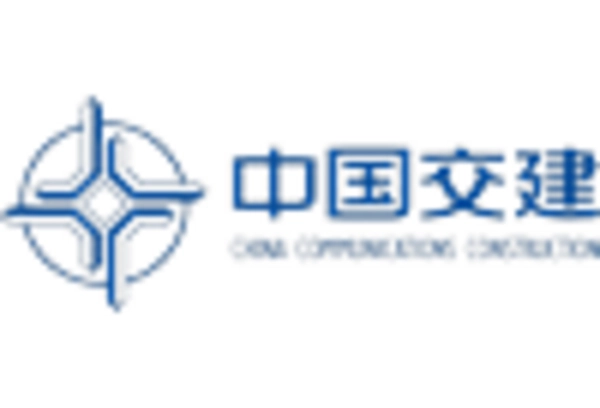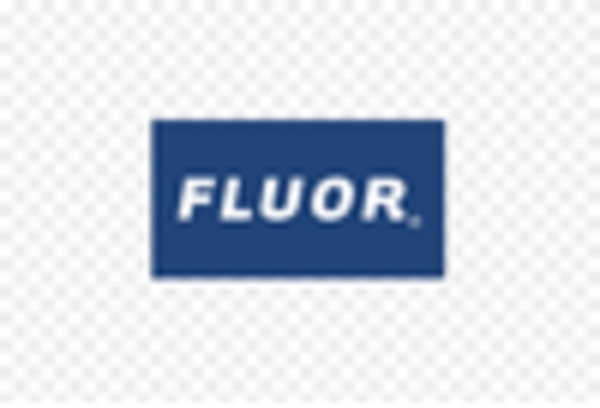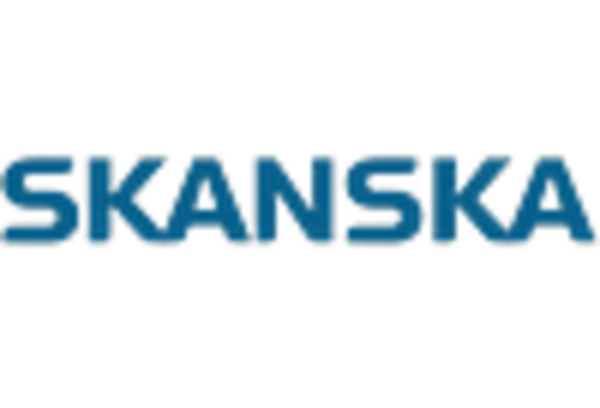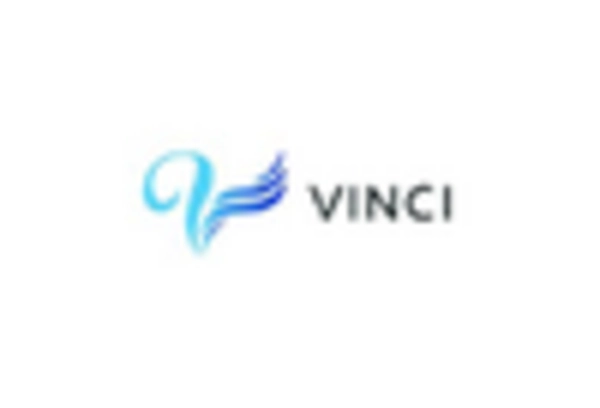The infrastructure construction market in South Korea is characterized by a competitive landscape that is both dynamic and multifaceted. Key growth drivers include government investments in public infrastructure, urbanization, and a push towards sustainable construction practices. Major players such as China Communications Construction Company (CN), Bechtel Corporation (US), and Vinci SA (FR) are strategically positioned to leverage these trends. For instance, China Communications Construction Company (CN) focuses on large-scale infrastructure projects, emphasizing innovation and technology integration, while Bechtel Corporation (US) is known for its project management expertise and commitment to safety and sustainability. Vinci SA (FR) has been actively pursuing partnerships to enhance its service offerings, thereby shaping a competitive environment that is increasingly collaborative and innovation-driven.In terms of business tactics, companies are localizing manufacturing and optimizing supply chains to enhance efficiency and reduce costs. The market structure appears moderately fragmented, with several key players exerting influence over various segments. This fragmentation allows for a diverse range of strategies, as companies seek to differentiate themselves through specialized services and technological advancements.
In October Bechtel Corporation (US) announced a strategic partnership with a South Korean technology firm to develop smart construction solutions aimed at improving project efficiency and sustainability. This move underscores Bechtel's commitment to integrating advanced technologies into its operations, potentially setting a new standard for project delivery in the region. The partnership is likely to enhance Bechtel's competitive edge by enabling it to offer innovative solutions that meet the evolving demands of clients.
In September Vinci SA (FR) secured a major contract for the construction of a new urban transit system in Seoul, reflecting its strategic focus on urban infrastructure development. This project not only reinforces Vinci's presence in the South Korean market but also aligns with the government's objectives to enhance public transportation. The successful execution of this project could further solidify Vinci's reputation as a leader in sustainable urban development.
In November China Communications Construction Company (CN) launched a new initiative aimed at promoting green building practices across its projects in South Korea. This initiative is indicative of a broader trend towards sustainability within the industry, as companies increasingly recognize the importance of environmental responsibility. By prioritizing green construction methods, China Communications Construction Company (CN) positions itself as a forward-thinking player in the market, likely appealing to environmentally conscious clients.
As of November current competitive trends are heavily influenced by digitalization, sustainability, and the integration of artificial intelligence (AI) into construction processes. Strategic alliances are becoming more prevalent, as companies seek to combine resources and expertise to tackle complex projects. The competitive differentiation is expected to evolve, shifting from traditional price-based competition to a focus on innovation, technology adoption, and supply chain reliability. This transition may redefine how companies position themselves in the market, emphasizing the need for agility and responsiveness to changing client needs.


